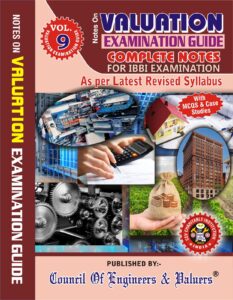Saturday Brain Storming Thought (240) 14/09/2024
MERCHANT BANKER VALUER
A Merchant Banker is a financial expert who works for a merchant bank, a financial institution that offers services to large corporations, high-net-worth individuals, and institutional investors
Merchant Banker Valuation Report Requirements
1) Income Tax
When a company issues new shares or transfers shares, or when a startup issues shares to investors
2) Regulatory Compliance
To ensure that financial assessments are accurate and transparent
3) Investment and tax decisions
To support investment and tax decisions
To become a Merchant Banker Valuer
Registered Valuer with IBBI (Insolvency Bankruptcy Board of India)
Individuals must meet eligibility criteria, pass specific examinations and have relevant experience in valuation methods
The IBBI website provides details on the registration process and qualifications
Difference between income tax registered valuer & merchant banker valuer
A income tax registered valuer shall arrive at the valuation as per Valuation Standards and Methodologies
Merchant Banker Valuer shall arrive at the valuation only using DCF method
DCF method of valuation
Discounted Cash Flow (DCF) is a valuation method that estimates the value of an investment using its expected future cash flows
Analysts use DCF to determine the value of an investment today, based on projections of how much money that investment will generate in the future
Fields for Merchant Banker Valuer
1) Valuation
Raising funds from private equity, fund raising, mergers, acquisitions
2) Financial Consulting
Offer broader financial guidance and planning
3) Long Term Funding
Equity funding or debt syndication, help to obtain both secured and unsecured loans to financial needs
4) Intermediary
They act as matchmakers in the financial world, connecting companies issuing securities (like stocks) with investors looking to buy them
5) IPO/FPO Management
Managing IPO/FPO, ensuring compliance with SEBI regulations and overseeing the entire process from prospectus preparation to final share allotment
6) Underwriting Expertise
They can act as underwriters, guaranteeing to buy unsold shares to ensure your fund raising success
Scope of Merchant Banker Valuers
1) Changing policy of financial institutions
FIs require the services of merchant banker valuer due to changing policies
2) Growth of new issues market
Both domestic and foreign investors are establishing businesses, leading to a surge in public and private issues
3) Financial Engineering
New financial instruments are constantly being innovated
4) Disinvestment
To obtain funds, companies may reduce some assets, and merchant banker valuers assist in this process
5) Corporate Restructuring
Merchant Banker Valuers help companies review their strategies, structure and operations, resulting in corporate restructuring
6) Debt Market Development
Significant capital is raised through debt instruments, leading to the development of the debt market
Importance of Merchant Banker Valuation
1) Promote the growth of the primary markets
2) Assist in purchasing securities
3) Ensure capital flow
4) Promote financial surplus
5) Coordinate activities related to share issues
6) Ensure compliance with rules and regulations
7) Help give guidance or a roadmap to a company
8) Help raise funds for small businesses and large corporations
Advantages of Merchant Banker Valuers
1) Provide investment advice
2) Have access to companies owned by dealers, financial institutions and clients
3) Aid in the distribution of profiles to investors
4) Assist in cash management and leasing operations
Disadvantages of Merchant Banker Valuers
1) Limited access to all potential products
2) Lack of control over interest rates or returns
3) Size constraints that must be met
4) No guarantee of start-up funding
Categories of Merchant Banker Valuers
1) Category I Merchant Banker Valuer
Certified by SEBI, authorized to perform a wide range of activities including issue management, portfolio management and advisory services
2) Category II Merchant Banker Valuer
These can act as advisors, consultants, co-managers and underwriters
3) Category III Merchant Banker Valuer
These can act as underwriters, advisors and consultants to an issue, they cannot act as lead managers for issue management
4) Category IV Merchant Banker Valuer
These are limited to acting as advisors or consultants to an issue, they do not engage in underwriting or issue management activities
Functions of a Merchant Banker Valuer
1) Fund raising assistance
2) Stock brokerage services
3) Project management
4) Handling public issues
5) Portfolio management
6) Advisory services
Merchant Banker Valuers Reports can be used by
1) Reserve Bank of India (RBI)
2) Securities Exchange Board of India (SEBI)
3) Stock Exchange
4) Income Tax authorities
5) Companies Act
6) Court cases
Merchant Banker Valuer can offer services for
1) Business valuation
2) ESOP accounting – Intrinsic value and black scholes
3) ESOP for taxation
4) Acquisition – Domestic & Cross Border
5) Merger – Assessment of Swap ratio
6) Fairness opinion
7) Valuation for spinoff/restructuring
8) Share purchase / investment / Fund raising
9) Good will and Asset impairment testing (US GAAP / IFRS / Indian GAAP)
10) Forensic valuations including court cases and legal proceedings
11) Valuations for Family settlements
12) Brand valuation
13) Intellectual property valuation
14) Asset valuation for purchase price allocation (US GAAP / IFRS)
15) Carried interest valuation
16) Derivative valuation under IFRS
COMPILED BY:-

Er. Avinash Kulkarni
9822011051
Chartered Engineer, Govt Regd Valuer, IBBI Regd Valuer












